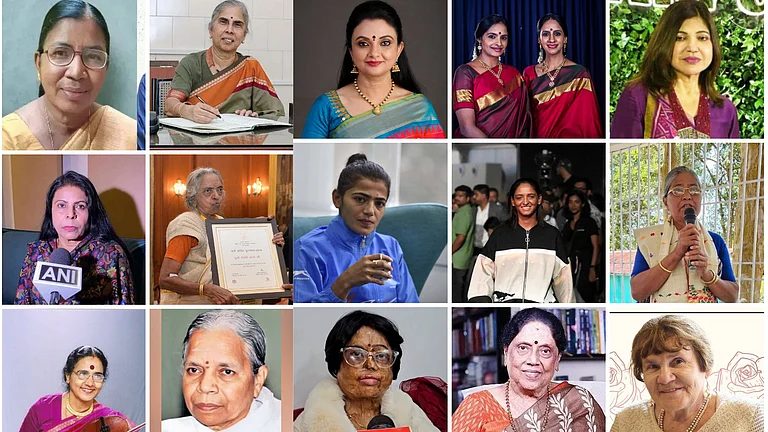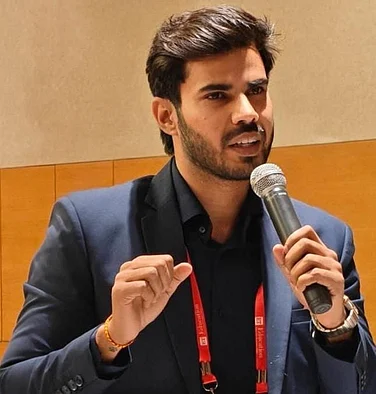Purvi Bhavsar is a first-generation entrepreneur from Ahmedabad, and the Co-founder and Managing Director of Pahal Financial Services Private Limited, a registered NBFC-MFI focused on microfinance and enterprise lending. The company manages an asset base of approximately ₹2,000 crores, operates through 300+ branches across nine states, and employs over 3,000 people. Pahal has provided financial services to more than one million women from low-income communities, contributing to broader financial inclusion efforts.
With over 32 years of experience spanning the BFSI and Telecom sectors, Purvi brings a broad background in Corporate and Retail Banking, Consumer Finance, Stock Broking, Distribution, Customer Service, and Microfinance. She is an alumna of the Goldman Sachs 10,000 Women program conducted at IIM Bangalore, the Stanford Seed Transformation Program (India 2019–21), where she received a scholarship, and an Acumen India Fellow.
She supports startups in fintech, agritech, and other impact-focused sectors. Her interest in climate-related issues is reflected in her work exploring how microfinance and sustainable finance can contribute to adaptation and mitigation strategies. Purvi also oversees various CSR activities — including e-clinics, flood relief, and health and hygiene programs — at the community level.
The climate crisis is a gendered crisis.
The two are so inextricably linked that any meaningful analysis of climate impact is incomplete without a gender lens.
Why is that?
The answer is two-fold:
1. Women are disproportionately impacted by climate change
Living in a patriarchal society puts women at an inherent disadvantage - socially, economically and politically. Due to existing gender inequality, women have less access to opportunities and resources compared to men.
Climate change acts as a threat multiplier, compounding these vulnerabilities. It puts women at a higher risk while also restricting their ability to recover from and adapt to its impact. The result is a vicious cycle that’s nearly impossible to break without external intervention.
The extent of the disproportion is also staggering. Globally, 4 of 5 people displaced by climate change are girls and women. When extreme weather disasters strike, women are 14 times more likely to die than men. Their safety is threatened in multiple ways – gender-based violence rises, girls are forced into early marriages, and their risk of sexual exploitation and trafficking increases. Existing health conditions are exacerbated, new ones emerge, and a lack of adequate sanitation facilities (especially for menstrual hygiene) intensifies the problem.
Pregnant women are particularly vulnerable to climate change-induced extreme heat, which increases the risk of maternal and infant health problems.
Climate change also disproportionately adds to women’s domestic labour. It makes securing food, water, and fuel more difficult. Women and girls make sacrifices to fulfil these increased demands, often leaving school, which disrupts their education and robs them of future advancement opportunities.
Women’s livelihoods are not spared either, as they’re usually employed in industries (like agriculture) that are extremely vulnerable to climate change. It’s estimated that by 2050, climate change may push ~158 million more women and girls into poverty and see 236 million more face food insecurity.
What’s even more disheartening is that, according to current data, it’ll take 134 years to reach full gender parity – roughly 5 generations beyond the 2030 SDG target.
2. Women are key to effective climate action
If supported appropriately, women are well positioned to become effective climate leaders and contributors. Their proximity to the frontlines, along with their particular experiences and perspectives, makes their role in formulating and implementing climate policies important.
Women are often excluded today to our collective disadvantage. According to McKinsey, in a “full potential” scenario where women participate equally with men in labor markets, approximately $28 trillion or 26% could be added to the global annual GDP by 2025. This amount could help cover the estimated $894 billion needed to fund climate initiatives by 2030.
Because of the important role women play in their households and communities, they contribute to building climate resilience and mobilizing communities for climate action. When extreme weather disasters occur, women often serve as first responders and participate in long-term recovery and rebuilding efforts. Globally, women from indigenous/tribal communities have a history of environmental activism and knowledge of sustainable practices.
As consumers, women make or influence 80% of purchase decisions. Research indicates they tend to be more environmentally conscious. Women currently control 40% of global wealth and show interest in investing in a sustainable future. Approximately 74% of women report being interested in increasing the share of ESG investments in their portfolios, compared to 53% of men.
On the political front, women tend to support eco-friendly policies and leaders. Evidence indicates that countries with higher female parliamentary representation are more likely to have stricter climate policies.
In business, gender-diverse firms tend to have better environmental reporting and climate governance.
Additionally, as primary caregivers of children worldwide, women are vital in preparing future generations to combat climate change.
Simply put, an equal role for women in society and the economy drives better climate results. One of the greatest challenges of our time cannot be addressed without their inclusion and participation at every level.
Author By – Purvi Bhavsar


























